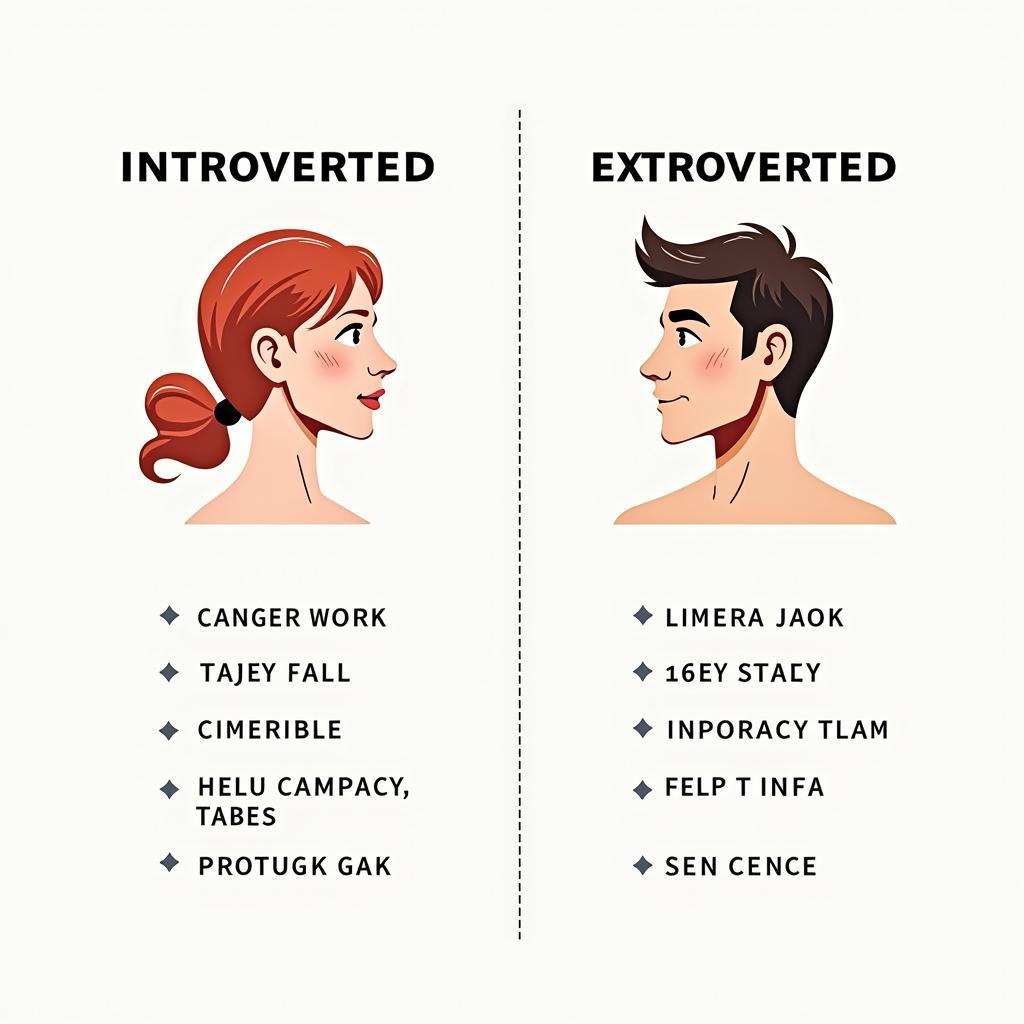The topic of describing an introverted person frequently appears in IELTS Speaking tests, particularly in Part 2. As an examiner, I’ve noticed this topic allows candidates to demonstrate their vocabulary range and ability to describe personality traits in detail.
Part 1: Introduction and Interview Questions
Common questions you may encounter:
- Do you consider yourself an introvert or extrovert?
- What personality traits do you value most in friends?
- How do you usually spend your free time?
Sample answer (Band 8-9):
“I’d say I’m more of an ambivert – someone who exhibits both introverted and extroverted qualities. While I thoroughly enjoy social interactions, I also cherish my alone time for self-reflection and recharging my energy.”
 IELTS Speaking Test Discussion About Personality Types
IELTS Speaking Test Discussion About Personality Types
Part 2: Cue Card
Task Card
Describe an introverted person you know well
You should say:
- Who this person is
- How you know them
- What makes them introverted
- And explain how you feel about their personality
Similar to describe a person who is passionate about their hobby, this topic requires detailed observation and description.
Sample Answer (Band 8-9)
“I’d like to talk about my colleague Sarah, a brilliant software developer I’ve been working with for the past three years. What makes her distinctly introverted is her preference for solitary activities and her thoughtful communication style. She tends to process information internally before sharing her insights, which often leads to remarkably well-conceived solutions.
Sarah exhibits classic introverted traits such as being highly observant and preferring deep one-on-one conversations over large group interactions. During team meetings, she carefully considers her words before speaking, and when she does contribute, her input is usually incredibly insightful.
I genuinely admire her ability to maintain meaningful relationships while staying true to her introverted nature. Her approach has taught me that being introverted isn’t about being antisocial, but rather about having a different energy management style.”
Part 3: Discussion Questions
Q: Do you think modern society favors extroverts over introverts?
Sample Answer (Band 8-9):
“While society often seems to place a premium on extroverted qualities, I believe there’s been a significant shift in recent years toward recognizing the valuable contributions of introverts. As discussed in describe a person who enjoys their job, many successful professionals actually thrive in more solitary roles.”
Q: How can workplaces better accommodate both introverted and extroverted employees?
Sample Answer (Band 8-9):
“Organizations can create an inclusive environment by offering flexible work arrangements and diverse collaboration options. This might include providing quiet spaces for focused work, similar to situations where describe a time when you felt very nervous, while also maintaining open areas for team interaction.”
Key Vocabulary and Phrases
- Introspective /ˌɪntrəˈspektɪv/ (adj): characterized by examination of one’s own thoughts
- Self-contained /ˌselfkənˈteɪnd/ (adj): not needing or wanting to share feelings with others
- Contemplative /kənˈtempleɪtɪv/ (adj): spending time thinking seriously and quietly
- Reserved /rɪˈzɜːvd/ (adj): slow to reveal emotion or opinions
- Recharge /riːˈtʃɑːdʒ/ (v): regain energy by spending time alone
Examiner’s Tips
- Use specific examples to illustrate introverted traits
- Maintain a balanced perspective when describing personality traits
- Demonstrate understanding of introversion vs. shyness
- Include personal observations and reactions
- Structure your response with clear progression
Remember to practice these patterns naturally, as demonstrated in describe a time when you received a compliment unexpectedly.


